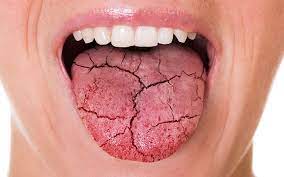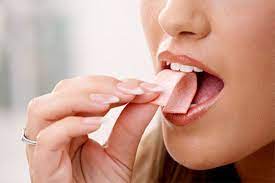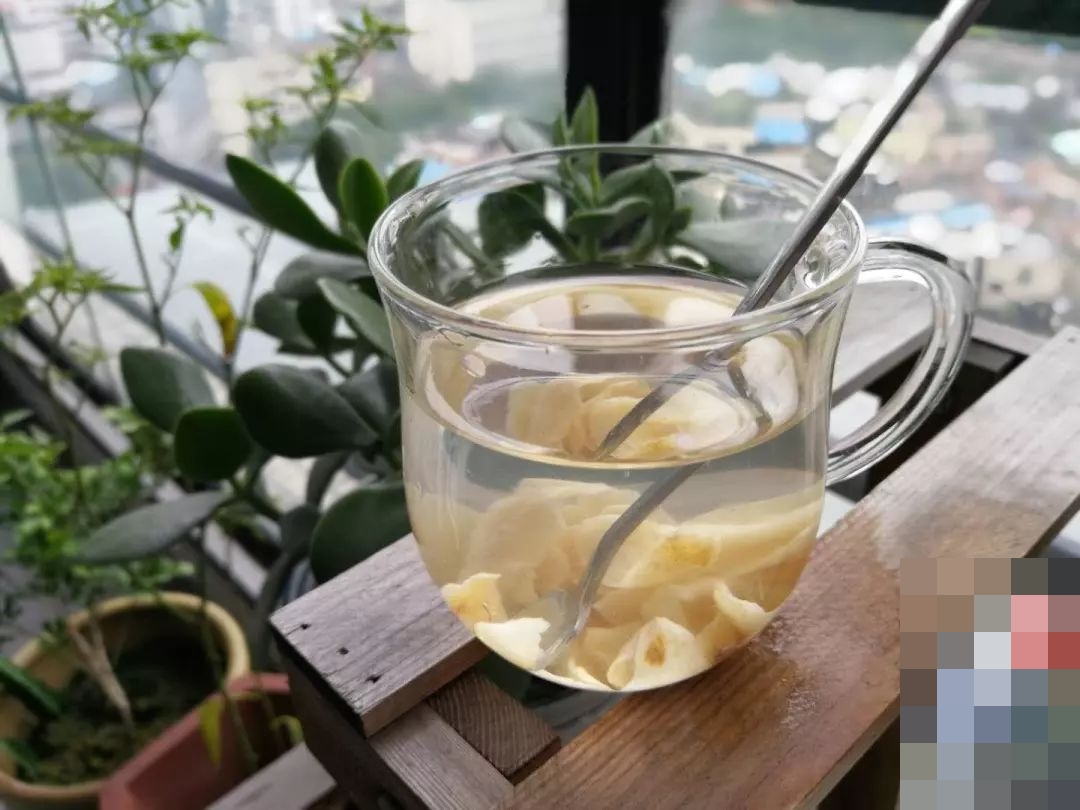Why do we feel dry mouth in winter?
The main reason is that the climate becomes drier and water evaporates too quickly, which exacerbates the initial dry mouth condition and makes the symptoms more pronounced. Dry mouth is not an independent disease but a group of symptoms including physiological and pathological causes.
Physiological causes: Drinking little water, eating salty or dry foods every day. Elderly people, declining functions, shrinking secretory glands, reduced saliva, and dry mouth appear at different levels; not timely water supplementation after exercise…
Pathological causes:
– The most common is dry mouth due to viral infection; high fever, diarrhea, mouth breathing… cause dehydration
– Prolonged anxiety, depression, insomnia, long-term bitter taste…
– Dry mouth caused by certain medications
– Dry mouth caused by systemic diseases such as Sjogren’s syndrome in patients, due to abnormal immune system in the body, destroying the structure of salivary and lacrimal glands leading to dry mouth and dry eyes, increased blood sugar due to serum infiltration in diabetic patients. Increased blood pressure causes dehydration of tissues causing dry mouth.
As you can see, there are many causes of dry mouth. Some are due to diet, bad physiological and psychological habits, some are due to diseases. To reduce dry mouth, increasing water intake only works for those who drink too little water or lose too much water, while dry mouth due to various diseases often has little effect. If the dry mouth condition does not improve in a short period of time, especially if the symptoms last more than three months, you should go to the hospital for a comprehensive examination.

Daily prevention of dry mouth includes the following methods:
– Keep your mouth clean and rinse your mouth regularly to reduce the risk of cavities and secondary oral infections.
– Prevent colds, maintain an optimistic attitude, relieve work stress, avoid anger and irritability.
– In dry winter, pay attention to your diet, eat more foods that nourish yin and moisturize the lungs such as honey water, ginseng, dried fruits, grapes, etc., which not only reduces dry mouth but also prevents constipation.
– Observe regular sleep and wake up early, participate in outdoor activities, moderate eating and drinking, quit smoking, avoid excessive alcohol consumption.
Some ways to reduce dry mouth:
– Chew sugar-free gum or suck on sugar-free hard candies to stimulate saliva production.

– Limit coffee consumption as caffeine can make your mouth drier.
– Quit smoking.
– Avoid using alcohol-containing mouthwashes as they can dry out your mouth.
– Drink water regularly. Dehydration is the leading cause of transient dry mouth. Therefore, drinking enough water every day is an effective way to treat dry mouth and also helps treat mild dehydration.
– Avoid foods and drinks with sugar or acid as they can increase the risk of dry mouth.
– Use over-the-counter saliva substitutes, look for products containing xylitol, carboxymethylcellulose, or hydroxyethyl cellulose.
– Use mouthwashes designed for dry mouth, especially those containing xylitol, which also have a protective effect against cavities.
– Avoid using over-the-counter antihistamines and nasal decongestants as they can worsen your dry mouth symptoms.
– Breathe through your nose rather than your mouth.
– Add moisture to the air at night with a room humidifier.
Dietary habits to improve dry mouth condition:
– Lotus seed drinks: longan, lotus seed, American ginseng, pears, boiled water, suitable for nourishing qi and nourishing yin.

– American ginseng longan: Extract the flesh of longan fruit and American ginseng in water, drink before going to bed, suitable for dry mouth due to disturbed mood.
– Snow mushroom, quail egg soaked in syrup: has the effect of invigorating the lungs, nourishing yin and nourishing the lungs, suitable for dry mouth due to lung yin deficiency.
– Eucommia soup: wash the eucommia and put it in a pot, add boiling water, strain the decoction and cook the porridge with rice. This method is suitable for people with spleen and stomach deficiencies and dry mouth.
– Snow mushroom nac tao meat soup: Use snow mushrooms and apples (remove the core) to cook the soup with lean meat, which has the effects of cooling heat, nourishing yin and moisturizing the lungs, suitable for people with dry mouth due to lung yin deficiency.
– Hoary leaf houeflower tea: American ginseng, houeflower, astragalus, quail egg, boiled with brown sugar, has the effects of invigorating the lungs, nourishing yin, and regulating body fluids.
Translated by AI – Vietnamnet
- Insufficient water intake
- Consumption of salty or dry foods
- Aging, leading to reduced secretory gland function and lower saliva production
- Not replenishing water after exercise
Yes, dry mouth can be caused by various pathological factors, including:
- Viral infections, high fever, diarrhea, and mouth breathing, leading to dehydration.
- Prolonged anxiety, depression, insomnia, and a persistent bitter taste.
- Side effects of certain medications.
- Systemic diseases such as Sjogren’s syndrome, which affects the immune system and destroys the structure of salivary and lacrimal glands.
- Increased blood sugar and blood pressure, causing dehydration of tissues.
Increasing water intake may help those who are dehydrated or don’t drink enough water. However, dry mouth caused by diseases often requires more targeted treatment. If symptoms persist for over three months, consult a doctor for a comprehensive examination.
- Maintain oral hygiene and regularly rinse your mouth to prevent cavities and infections.
- Stay optimistic, manage stress, and avoid anger to prevent dry mouth caused by anxiety and depression.
- In winter, consume more yin-nourishing and lung-moisturizing foods like honey, ginseng, dried fruits, and grapes to reduce dry mouth and prevent constipation.
- Get sufficient sleep, exercise outdoors, and maintain a balanced diet. Quit smoking and limit alcohol consumption.
- Drink lotus seed beverages made with longan, lotus seeds, American ginseng, and pears to nourish qi and yin.
- Extract the flesh of longan and American ginseng, and drink it before bed to soothe dry mouth caused by mood disturbances.
- Soak snow mushrooms and quail eggs in syrup to invigorate the lungs, nourish yin, and address dry mouth due to lung yin deficiency.
- Cook eucommia soup or porridge to help with spleen and stomach deficiencies and dry mouth.
- Make snow mushroom and nac tao meat soup with apples and lean meat to cool heat, nourish yin, and moisturize the lungs.
- Brew hoary leaf houeflower tea with American ginseng, houeflower, astragalus, quail eggs, and brown sugar to invigorate the lungs, nourish yin, and regulate body fluids.
Analyzing Distinctions Between Covid-19 and Seasonal Flu Respiratory Illnesses
Have you been feeling under the weather lately? It might be difficult to tell whether it’s Covid-19 or flu symptoms you are experiencing. Fortunately, there are a few identifying factors that can help us differentiate between these illnesses. In this article, we’ll discuss the key differences between Covid-19 and seasonal flu.





































